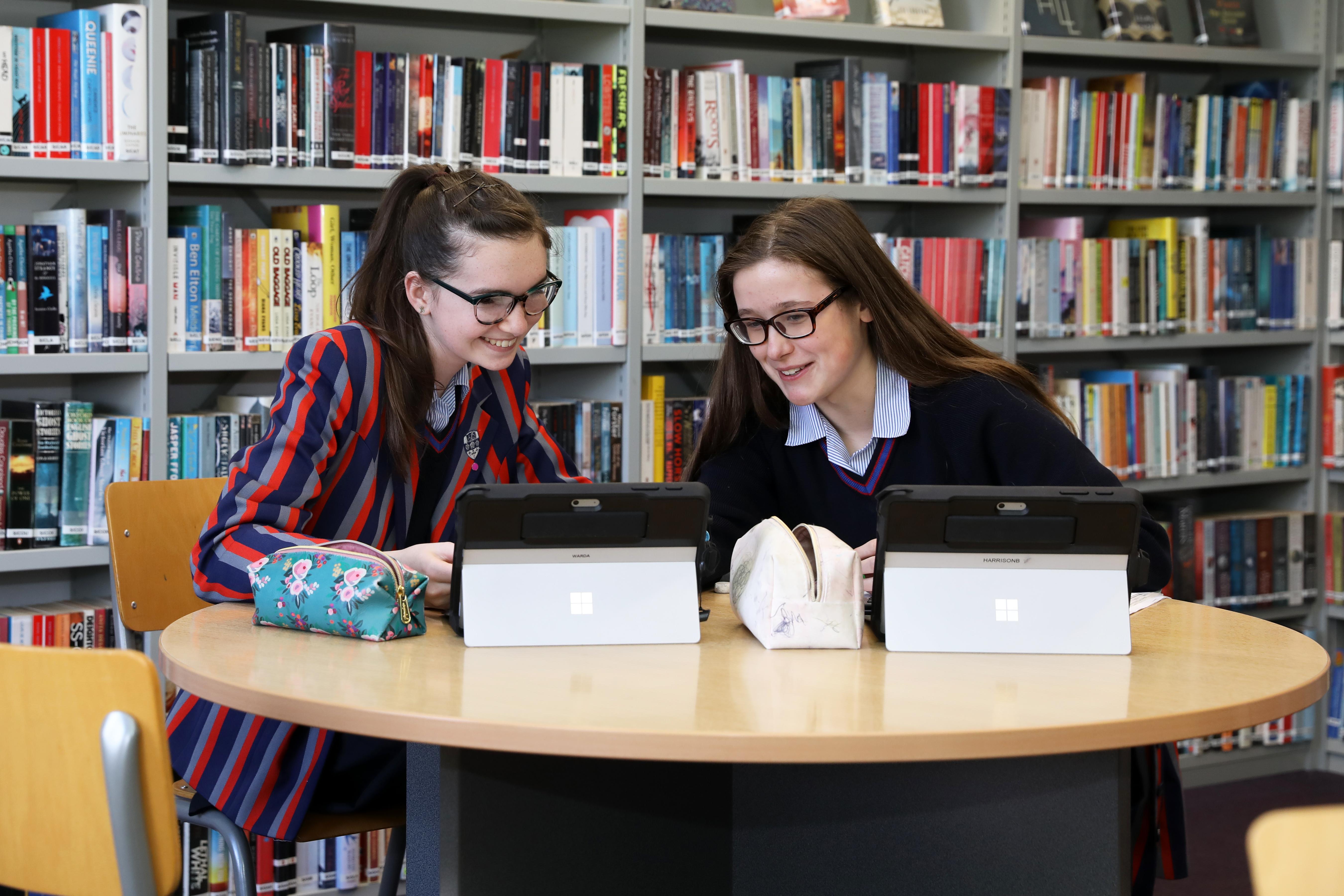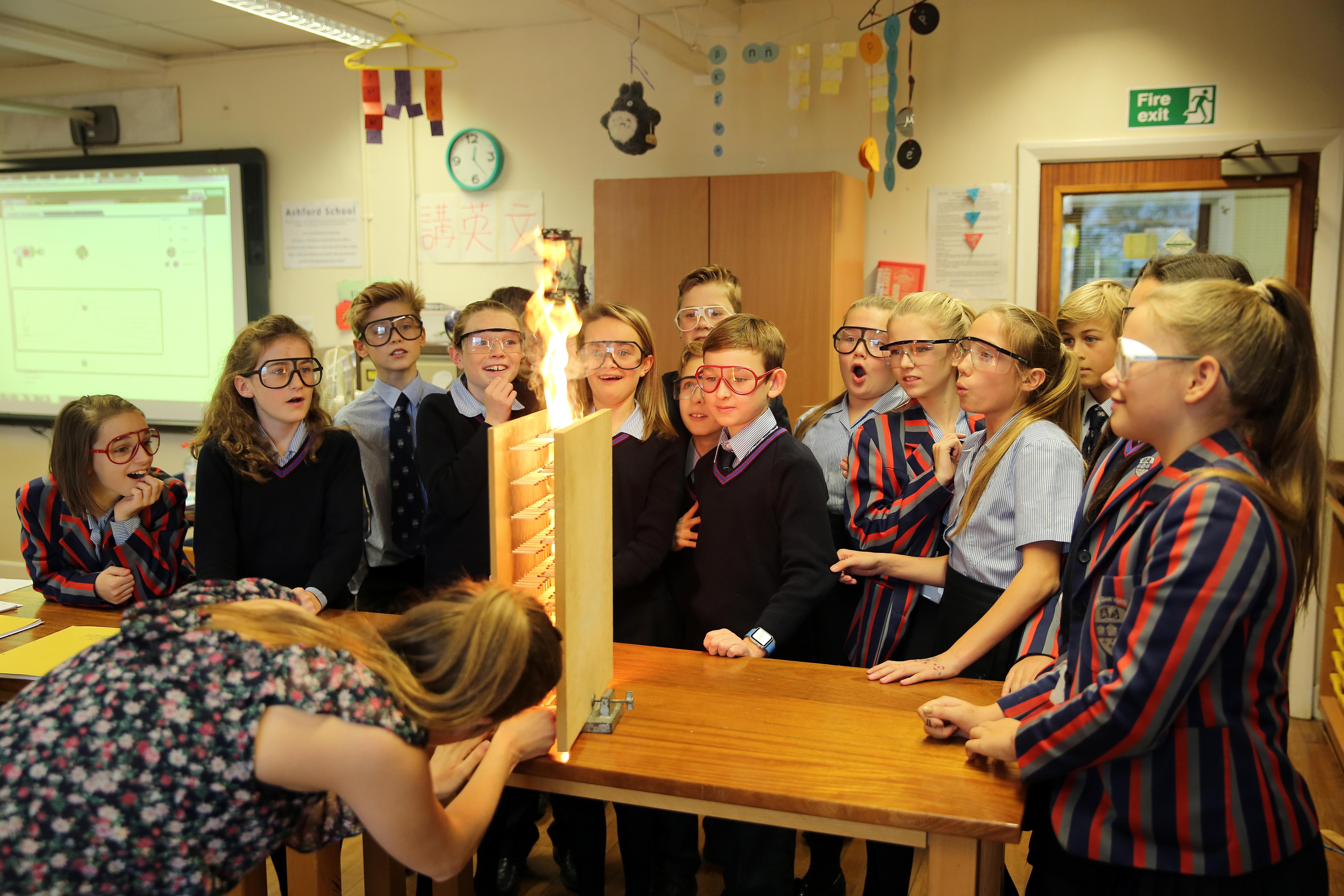
3 minute read
Sciences
The Modern Languages department is lively and exciting, running GCSE courses in French, German and Spanish. Working with native speakers as assistants, the modern language teachers are passionate about their subject and committed to transferring this enthusiasm to their pupils. We make no claims that a modern language will be easy, but we know exactly what is needed to maximise the potential of all our pupils and have the determination and expertise to ensure they achieve this. A full programme of cultural trips and exchanges helps to bring classroom work to life. We regularly organise trips to Spain and Germany to give you the chance to practise your language skills in real settings.
Future pathways
You can continue your language studies at A Level in the Sixth Form with a minimum requirement of a 7/8 grade at GCSE. This subject can be combined with a variety of academic and practical subjects, such as History, Geography, English, Economics, Business Studies, Design Technology, Textiles, and any science-based subjects. Given the demand for culturally intelligent, outward looking and polyglot employees, it makes absolute sense to include an MFL in your A Level portfolio.
(This may be in place of another subject) No Exam
English as an Additional Language Lessons
These lessons are suitable for international students who need to improve their English language skills, but who may take part in the mainstream English lessons with the rest of their year group.
This course is designed to help students refine their general and academic English, as well as give students language support to help them succeed in their other GCSE subjects.
Most EAL pupils are entered for GCSEs in their home languages (i.e. a Chinese pupil will sit IGCSE Chinese as a First Language). Some EAL students may also do English as Second Language with the EAL Department.
All international students will be assessed on arrival by the EAL staff in order to determine the level of support each pupil requires.


Board: AQA Specification - Biology: 8461 Specification - Chemistry: 8462 Specification - Physics: 8463 Specification - Combined Science Trilogy: 8464
Why study GCSE Sciences?
The GCSE Science course aims to encourage students to:
Acquire a systematic body of scientific knowledge, and the skills needed to apply this in new and changing situations, in a range of domestic, industrial and environmental contexts. Acquire an understanding of scientific ideas - how they develop, and the factors which may affect their development and their power, as well as their limitations. Plan and carry out investigative tasks, and consider and critically evaluate their own data, and that obtained from other sources, using ICT where appropriate. Use electronic (internet, apps, databases, simulations etc.) and/or more traditional sources of information (books, magazines, leaflets etc.) to research and plan an investigation. Select, organise and present information clearly and logically, and use appropriate scientific terms and conventions, and ICT, where appropriate. Interpret and evaluate scientific data from a variety of sources.
Important information
All pupils in Year 10 follow the same AQA GCSE Sciences course, allowing access at the end of Year 10 to either the trilogy science pathway: GCSE Combined Science Trilogy or the triple science pathway: GCSEs in Biology, Chemistry and Physics. The Trilogy Course is comprised of all three sciences, but has slightly less content and is therefore worth two GCSEs only and is the pathway followed by most pupils. At GCSE, all students, regardless of pathway, are taught by subject specialists, in specialist laboratories, and all are prepared for access to A Level study.
Initially all Year 10 pupils are streamed in the sciences on the basis of the science assessments conducted in Year 9 or by entrance paper performance. All pupils in Year 10 follow the same course. At the end of Year 10, school examinations take place across the three sciences and all pupils are re-streamed for Year 11 on the basis of their scores. To maximise success at GCSE, it is at this point that most pupils will be guided to continue with GCSE Combined Science (Trilogy), or be recommended to attempt the three single sciences (Separate awards). Prospective Triple award pupils should expect to excel in Year 10 sciences and be adept at independent study.










